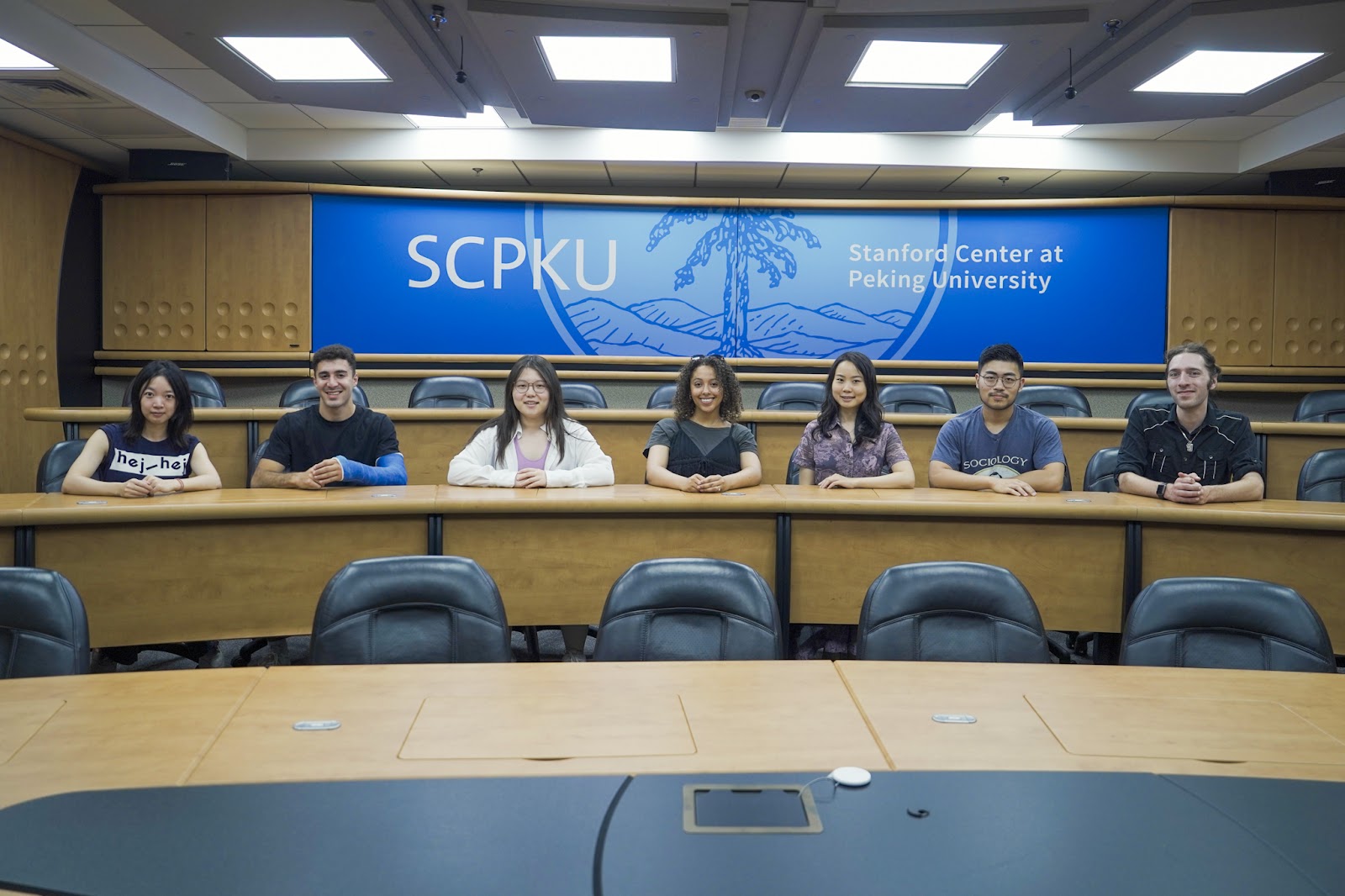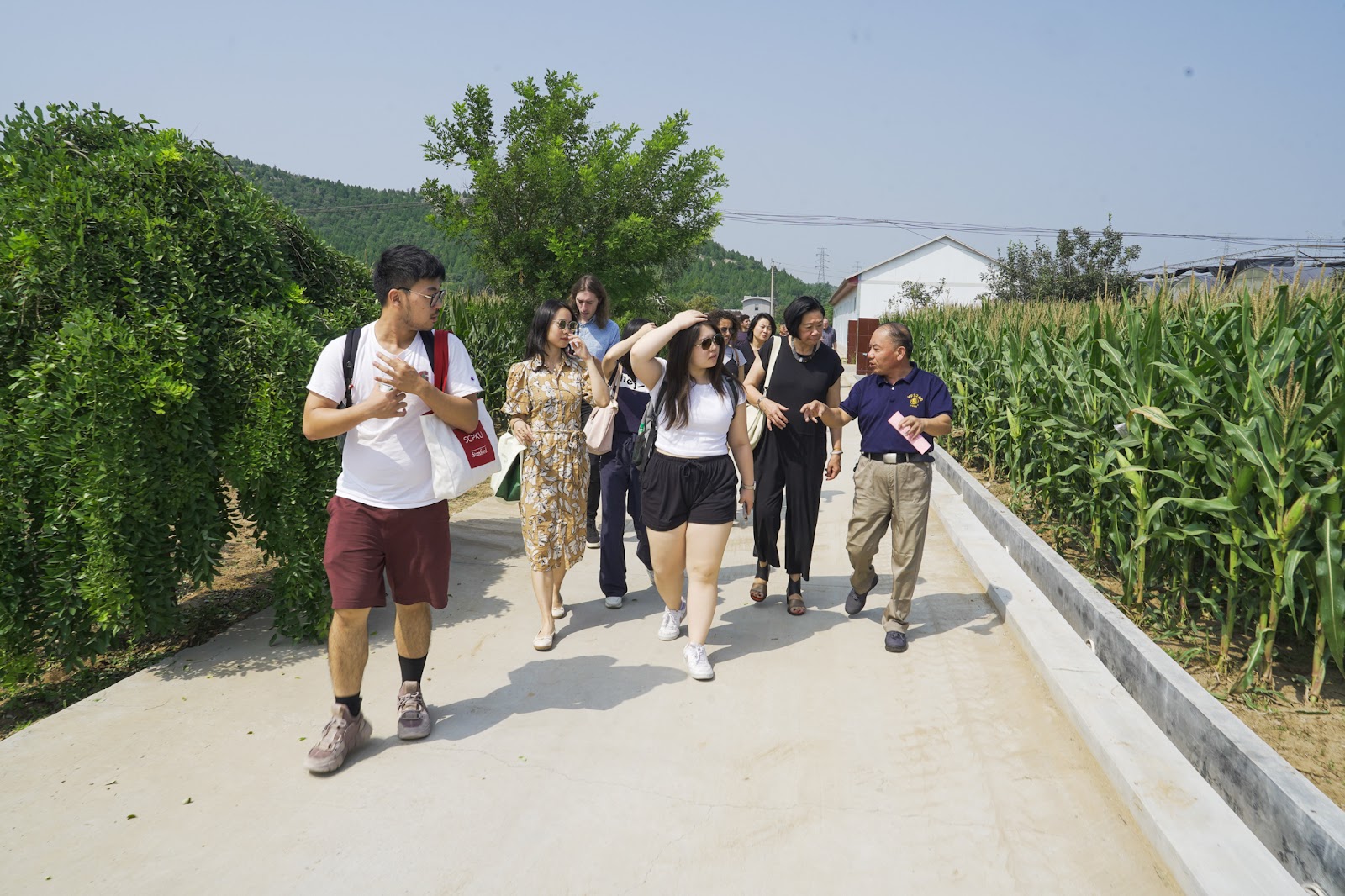Growing up, like millions of other Chinese kids, I dreamed of studying at Peking University. When I moved to the United States for high school eight years ago, I thought this childhood dream would never come to fruition, but sometimes life presents us with pleasant surprises. Never would my elementary-school self have thought that one day, I would live and study at Peking University, the academically sacred ground that has nurtured the most admirable leaders and thinkers in China.
In Summer 2023, I had the opportunity to spend three weeks at Peking University while participating in the SCPKU summer seminar. The trip was extremely rewarding and memorable for personal and academic reasons. On a personal level, prior to the trip, I had not returned to China and seen my family for over two years because of Covid-19 restrictions.
In the aftermath of the pandemic, many universities in Beijing continued to enforce strict rules regarding campus visitors. Prior to Covid-19, PKU was an open campus allowing anyone to enter freely. But afterwards, visiting the campus became difficult for those without connections to a PKU affiliate. This was the case for my close circles until I was granted PKU student status through my participation in the seminar at SCPKU. This status meant that I could invite people to campus, and in less than a month, more than ten family members and friends visited me from across Beijing, and some even flew in from another city, just for the chance to breathe in the holy air at this nationally recognized academic pinnacle. My seven-year-old niece, though born and raised in Beijing, had never had a chance to visit PKU. It was a magical experience to see her laughing and running alongside Weiming Lake out of joy, as she finally had a chance to set foot on the campus where she began to envision her future.

From left to right: Qianmin Hu, Charles Sheiner, Lisa Lu, Tabatha Anderson, Yujing Zhang, Junliang Xu, William Doolittle
“I don’t want to leave!” I said this every day to my best friend Will, who also participated in the summer seminar. I cherished my daily promenade from the international students’ dorm across the street to the PKU campus. Walking past the scenic Weiming Lake, strolling through the scattered shade of willow trees, passing the best and brightest while they engaged in deep intellectual conversations, and arriving at SCPKU, an artistic blend of traditional Beijing siheyuan and modern design, I felt blessed.
The three-week experience in China was also enriched by academic exchanges and explorations. Eight Stanford students from diverse backgrounds, ranging from undergraduate to graduate to PhD, shared our SCPKU experience with eight top talents from Tsinghua and Peking University. Together, we took Prof. Andrew Walder’s seminar, “China's Largest Corporations: A Case Study Workshop”, during which each of us Stanford folks collaborated with a Tsinghua or PKU counterpart and conducted detailed research on two Chinese companies from the global Fortune 500 list.

Field visit in Zouping county
To witness China’s drastic economic change with our own eyes, we went on a weekend trip to Zouping county, a region in Shandong province and the first city that allowed foreign scholars to conduct research in China following the open-door policy in the late 1970s. We had the pleasure of meeting government officials, exchanging ideas with them in round-table meetings, and asking them questions about the government policies regarding China’s state-owned enterprises. While touring Weiqiao Textile Company Limited, a Fortune Global 500 enterprise, we marveled at a fully automated, efficient factory. To make the SCPKU summer experience full circle, in March 2024, when the Shandong Vice-Governor and a number of officials and scholars from Zouping visited APARC at Stanford, I had the great honor of sitting at the round table and translating for the meeting.
I encourage my fellow Stanford peers interested in China to spend some time at SCPKU. Whether raised in China or stepping onto its land for the first time, whether you’ve studied Chinese for years or never whispered a single word, you will discover something new about the country, the culture, and the people you have not known. My summer 2023 experience at SCPKU was not only a dream come true for me, but also for my niece and my entire family. I will forever be grateful to Stanford for giving me this opportunity.























































































